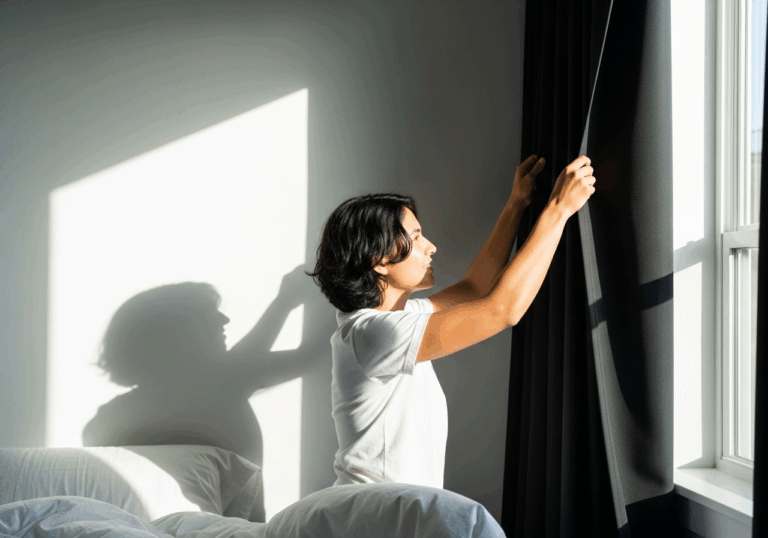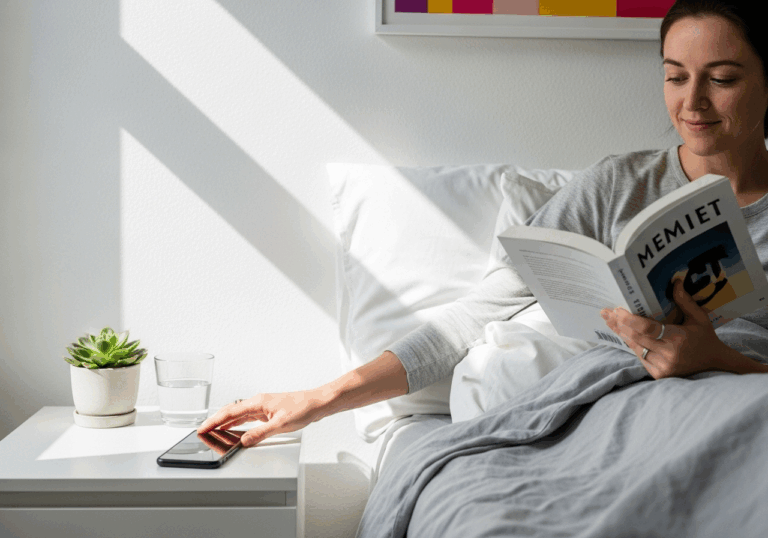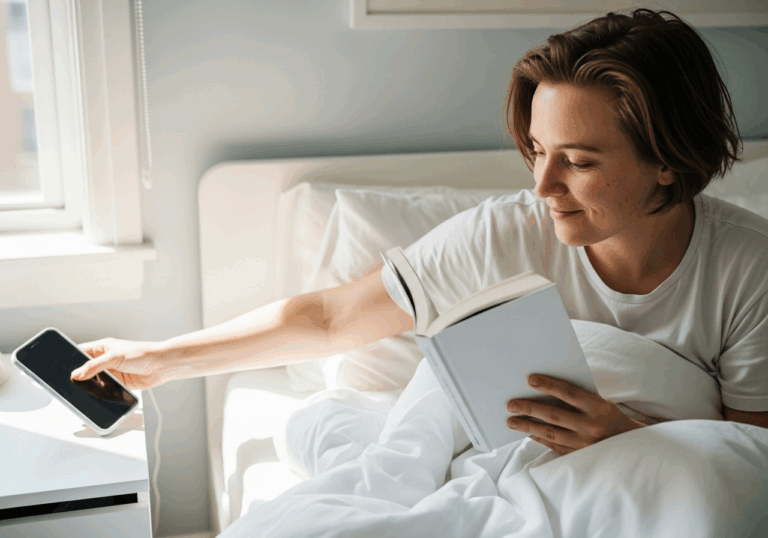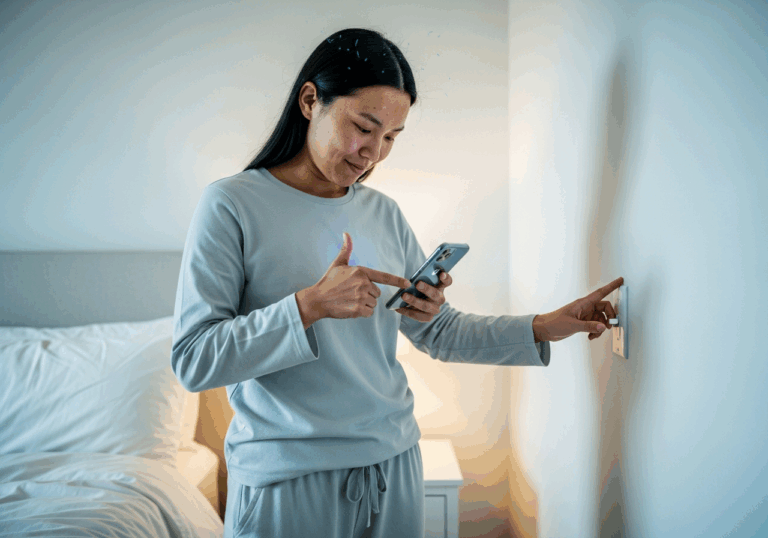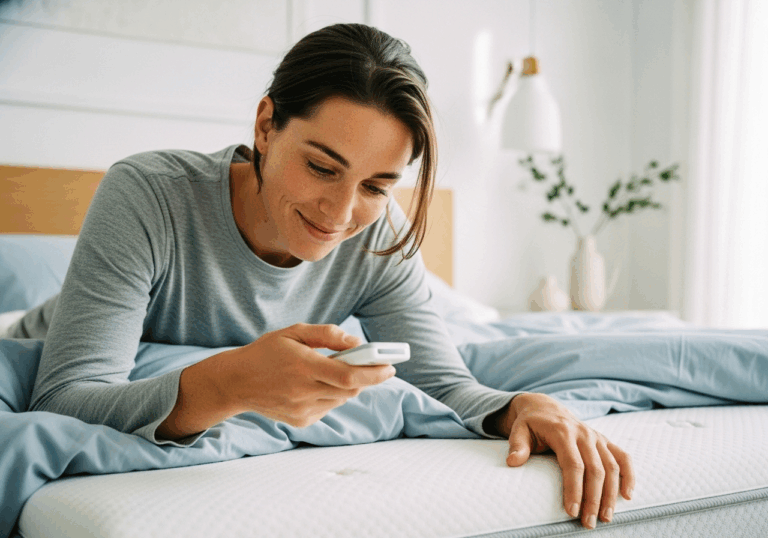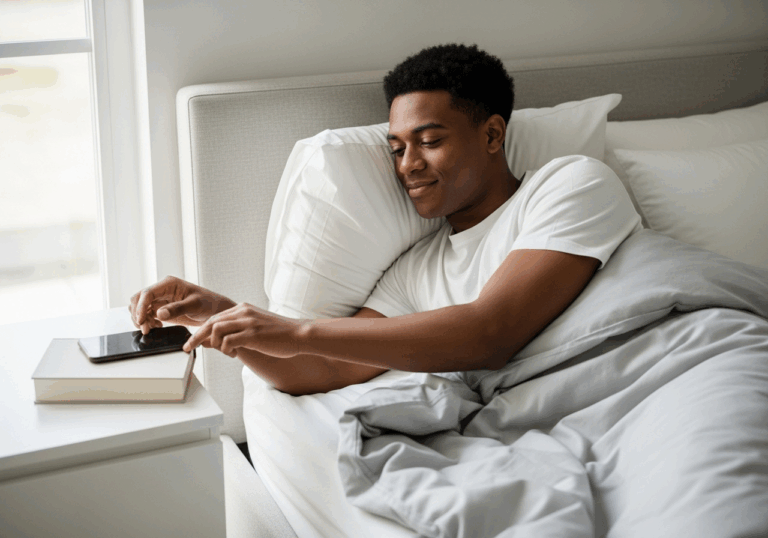Science-Backed Tips
Improve Sleep by Reducing Screen Time
Avoid screens 30 minutes before bed to sleep better.
📊 Did you know?
💡 Why It Matters
1️⃣
Reducing screen time before bed can lead to a 15-minute decrease in sleep onset latency.
2️⃣
Improved sleep quality can enhance mood and reduce pre-sleep arousal.
3️⃣
Lowering physiological stress through better sleep can improve overall health outcomes.
✅ Try These Micro-Tips
🎯
Avoid using electronic devices for at least 30 minutes before bedtime.
🎯
Establish a calming bedtime routine that does not involve screens.
🎯
Consider reading a book or practicing relaxation techniques before sleep.
🎯
Keep electronic devices out of the bedroom to minimize temptation.
📚 The study
❓ Frequently Asked Questions ❓
Learn more
How does screen use before bedtime affect sleep onset latency?
Using screens before bedtime can increase sleep onset latency by approximately 15 minutes. This is due to the stimulation and blue light emitted by electronic devices, which can interfere with the body’s natural sleep signals.
What is the recommended duration for avoiding screens before sleep?
It is recommended to avoid screen use for at least 30 minutes before bedtime. This practice can help improve sleep quality and reduce the time it takes to fall asleep.
What impact does smartphone use have on sleep quality?
Smartphone use before bed has been shown to double the odds of experiencing sleep latency greater than 30 minutes. This correlation indicates that late-night device use is linked to poorer sleep quality.
How can reducing screen time improve mood?
Reducing screen time before bed can lower physiological stress, which in turn improves mood. Better sleep quality resulting from less screen exposure can also contribute to a more positive emotional state.
What are some alternatives to screen use before bed?
Alternatives to screen use include reading a book or practicing relaxation techniques such as meditation or deep breathing. Establishing a calming bedtime routine can promote better sleep without the distractions of electronic devices.
Why is it important to keep electronic devices out of the bedroom?
Keeping electronic devices out of the bedroom minimizes temptation and reduces the likelihood of late-night screen use. This can help create a more conducive environment for restful sleep.
What is the significance of the study’s findings on screen use and sleep?
The study found a strong association between bedtime electronic device use and negative sleep outcomes, including increased sleep latency and poor sleep quality. These findings highlight the importance of managing screen time for better overall health.
How does better sleep contribute to overall health?
Improved sleep quality can lower physiological stress, which is beneficial for overall health. Adequate sleep is linked to better mood regulation, cognitive function, and physical well-being.
What is sleep onset latency?
Sleep onset latency refers to the amount of time it takes to transition from full wakefulness to sleep. A shorter sleep onset latency is generally associated with better sleep quality and overall restfulness.
Can relaxation techniques before bed help with sleep?
Yes, practicing relaxation techniques before bed can significantly improve sleep quality and reduce pre-sleep arousal. Techniques such as deep breathing or gentle stretching can help calm the mind and prepare the body for sleep.
